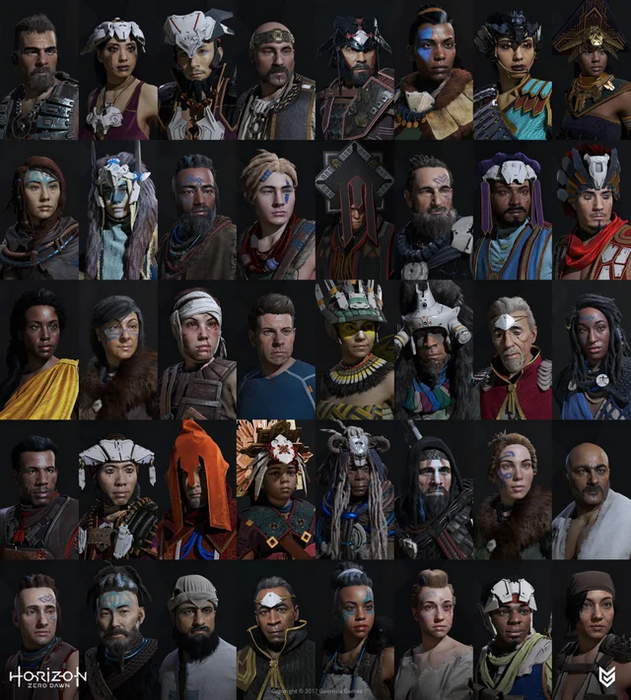Content note: This will contain minor spoilers only. No guarantees about the comment section.
Horizon: Zero Dawn is a 2017 video game that takes place in a post-apocalyptic world where robotic beasts roam the earth. The protagonist, Aloy, is an exile from the Nora, a tribe of hunter-gatherers. Aloy’s mission in life is to end her own exile, but as soon as she succeeds, she receives her call to adventure, and must venture out of Nora lands into Carja territory.
HZD has some genuinely interesting things to say about race, far surpassing my expectations for a big-budget video game. Here I will discuss how the game hits the mark on several issues. Then I’ll discuss how the game has been criticized for cultural appropriation of Native Americans. Finally, I will discuss my own criticism: Where the main game succeeds, the DLC pack The Frozen Wilds falls flat on its face.
Where Horizon: Zero Dawn succeeds
The first thing that stands out about HZD is its racially diverse cast. Behold:

Credit: AbyssOfUnknowing. These are all minor characters, because the image was challenging people to name as many characters as they could remember.
